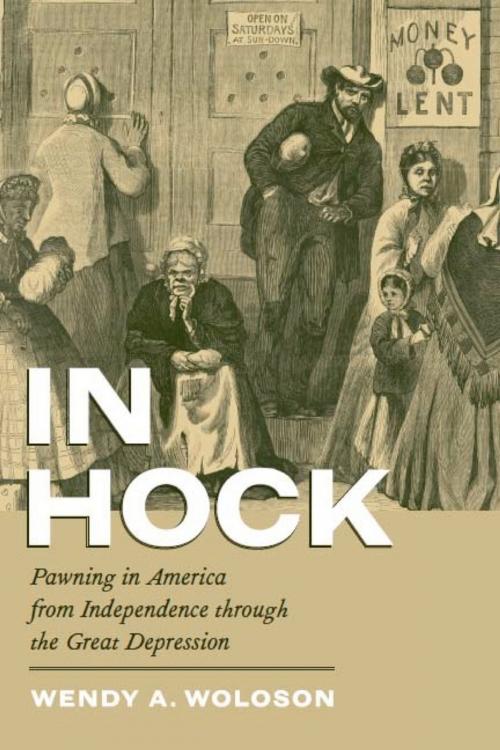In Hock
Pawning in America from Independence through the Great Depression
Business & Finance, Economics, Economic History, Nonfiction, History, Americas, United States| Author: | Wendy A. Woloson | ISBN: | 9780226905693 |
| Publisher: | University of Chicago Press | Publication: | December 16, 2009 |
| Imprint: | University of Chicago Press | Language: | English |
| Author: | Wendy A. Woloson |
| ISBN: | 9780226905693 |
| Publisher: | University of Chicago Press |
| Publication: | December 16, 2009 |
| Imprint: | University of Chicago Press |
| Language: | English |
The definitive history of pawnbroking in the United States from the nation’s founding through the Great Depression, In Hock demonstrates that the pawnshop was essential to the rise of capitalism. The class of working poor created by this economic tide could make ends meet only, Wendy Woloson argues, by regularly pawning household objects to supplement inadequate wages. Nonetheless, businessmen, reformers, and cultural critics claimed that pawnshops promoted vice, and employed anti-Semitic stereotypes to cast their proprietors as greedy and cold-hearted. Using personal correspondence, business records, and other rich archival sources to uncover the truth behind the rhetoric, Woloson brings to life a diverse cast of characters and shows that pawnbrokers were in fact shrewd businessmen, often from humble origins, who possessed sophisticated knowledge of a wide range of goods in various resale markets.
A much-needed new look at a misunderstood institution, In Hock is both a first-rate academic study of a largely ignored facet of the capitalist economy and a resonant portrait of the economic struggles of generations of Americans.
The definitive history of pawnbroking in the United States from the nation’s founding through the Great Depression, In Hock demonstrates that the pawnshop was essential to the rise of capitalism. The class of working poor created by this economic tide could make ends meet only, Wendy Woloson argues, by regularly pawning household objects to supplement inadequate wages. Nonetheless, businessmen, reformers, and cultural critics claimed that pawnshops promoted vice, and employed anti-Semitic stereotypes to cast their proprietors as greedy and cold-hearted. Using personal correspondence, business records, and other rich archival sources to uncover the truth behind the rhetoric, Woloson brings to life a diverse cast of characters and shows that pawnbrokers were in fact shrewd businessmen, often from humble origins, who possessed sophisticated knowledge of a wide range of goods in various resale markets.
A much-needed new look at a misunderstood institution, In Hock is both a first-rate academic study of a largely ignored facet of the capitalist economy and a resonant portrait of the economic struggles of generations of Americans.















